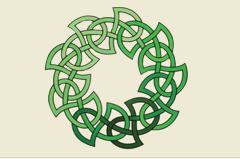Abstract
“But the more [Syme] felt this glittering desolation in the moonlit land, the more his own chivalric folly glowed in the night like a great fire. Even the common things he carried with him – the food and the brandy and the loaded pistol – took on exactly that concrete and material poetry which a child feels when he takes a gun upon a journey or a bun with him to bed. The swordstick and the brandy-flask, though in themselves only the tools of morbid conspirators, became the expressions of this own more healthy romance.”
Chesterton’s poet-protagonists bear arms as a matter of course, and take up the pocket pistol as readily as the pen. Why is that? What is the romance of the pocket pistol? In The Man Who Was Thursday, both the poet Syme and the anarchist Gregory were able to perceive the real and practical consequences of ideas. The policeman and the anarchist alike knew that anarchy was not an intangible creed, but an imminent and practical plan of attack. Though dismissed in Saffron Park, anarchy was real, so real that Syme could duel it – and he did. The romance of the pocket pistol is that the poet, who knows the value of life, also knows that there is something worth dying for. Syme “felt a strange and vivid value in all the earth around him, in the grass under his feet; he felt the love of life in all living things” (TMWWT, Chapter X) before his duel with the Marquis, who embodied in a single opponent all the horror of the conscienceless, implacable purpose of anarchy. But the very diabolical impossibility of the fact that the Marquis was impervious to injury filled Syme with a renewed sense of reality. “After all,” he said to himself, “I am more than a devil; I am a man. I can do the one thing which Satan himself cannot do – I can die” (TMWWT, Chapter X). In the glow of his “chivalric folly,” Syme knew the power and the horror of anarchy, its unthinkable intentions, and incredible imminence. That is why the pocket pistol takes on such chivalric significance; it has become a tool, not to kill a man, but to combat an idea. The romance of the pocket pistol is that an idea may become a man.
Recommended Citation
Dooley, Jessica D.
(2010)
"Romance and the Pocket Pistol: The Armed Poet in The Man Who Was Thursday,"
Inklings Forever: Published Colloquium Proceedings 1997-2016: Vol. 7, Article 3.
Available at:
https://pillars.taylor.edu/inklings_forever/vol7/iss1/3
Included in
English Language and Literature Commons, History Commons, Philosophy Commons, Religion Commons

